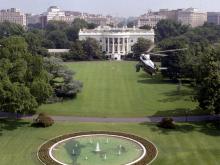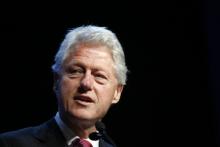brookings institution

Since winning the election with strong support from conservative evangelical voters, President Trump has invited their leaders to the White House, and banned government funding for groups that support or perform abortions overseas.
But he has yet to move on one item that many of them care about.
No one has been named to direct the Office of Faith-based and Neighborhood Partnerships, which, since 2001, has linked government with a broad range of religious groups.

Most discussions around development in Africa fall into the false dichotomy of trade vs. aid. The United States has commitments that inextricably connect trade and aid, development and technical assistance alongside strong economic relationships with many of the continent's countries.
Understanding these relationships and continually working to strengthen them is of vital importance, both for the African continent (in particular in sub-Saharan Africa) and for the United States. Gone are the days of paternalism – in today’s world, we must view the developed and developing states as equal partners in a complex and interdependent world.
The most comprehensive legislation on the United States’ commercial relationship with Africa is The African Growth and Opportunity Act (AGOA), signed into law by President Clinton in 2000 in the hope of creating mutual benefits for both the U.S. and Africa.
This week, the Brookings Institution hosted an event which looked back at the last 12 years of the legislation, which the Institution estimates has created 300,000 jobs in Africa and taking the opportunity to look forward.
The Public Religion Research Institute recently released the results of their newest survey, "Committed to Availability, Conflicted About Morality," which shined new light on the complexity of opinions on abortion between different religious groups and age demographics. The study results were presented two weeks ago at the Brookings Institution in Washington, D.C.
The most intriguing age group in the study are Millenials, ages 18 to 29. In the introduction to the survey results, the authors claim that given Millenials' self-described characteristics of being "confident, self-expressive, liberal, upbeat, and open to change," they have a "peculiar profile" when it comes to their views on abortion. And this is especially "peculiar" when viewed alongside their strong support for gender equality and rights for gay and lesbian people. Millenials' complex, label-defying views of abortion make them "conflicted about morality," the report states. But are Millenials really, actually conflicted about morality?